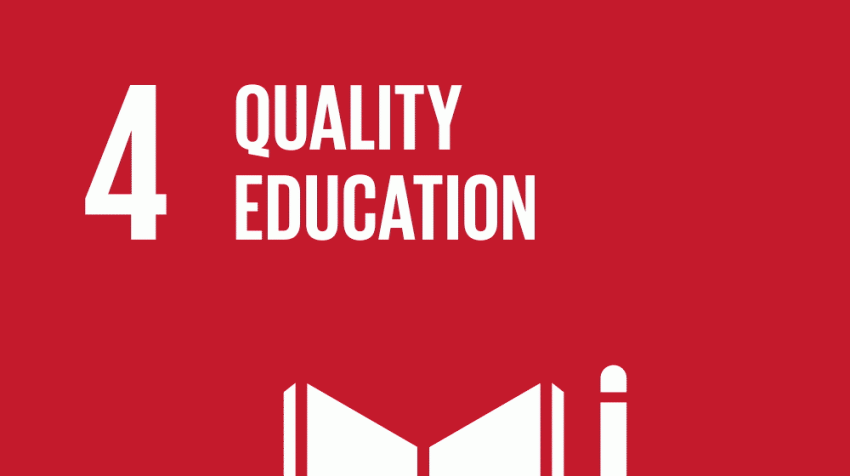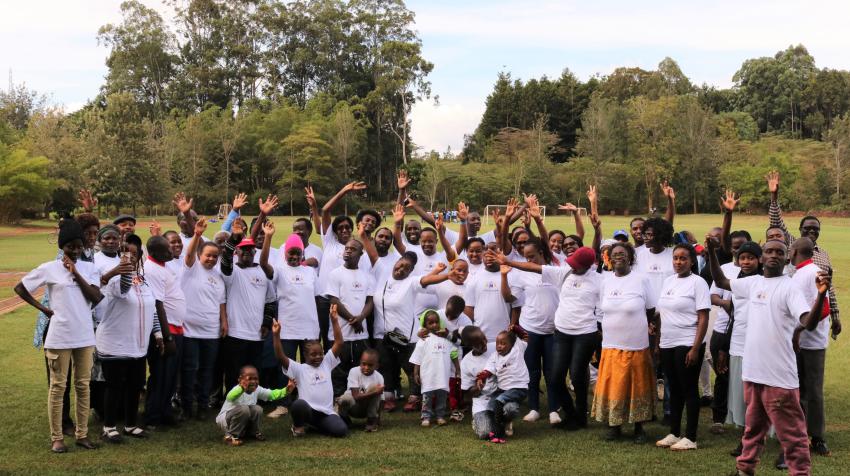April 2015, No. 4 Vol. LI, Beyond 2015
A collective sigh of relief was heard from the international education community when the sustainable development goals (SDGs) proposed by the Open Working Group (OWG) of the General Assembly in July 2014 included a stand-alone goal on education.
Earlier on in the OWG process, there were genuine concerns that education might not emerge as a stand-alone goal, or that there could be a repeat of what happened in 2000 when the scope of the international agenda for education fell short of the ambition and the holistic approach set by the education community.
It was April 2000 when the world gathered in Dakar, Senegal, for the World Education Forum and adopted six Education for All (EFA) goals. It committed United Nations Member States to 1) expand early childhood care and education; 2) universalize primary education; 3) improve access to life-skill learning; 4) achieve 50 per cent improvement in adult literacy; 5) achieve gender equality; and 6) enhance the quality of education. A few months later, eight Millennium Development Goals (MDGs) were established at the United Nations. Featured among the MDGs were universal access to primary education (MDG 2) and a target on gender parity in education, as part of the goal on gender equality and women’s empowerment (MDG 3).
There is now a remarkable opportunity to provide a more aspirational vision for education in the post-2015 development agenda. Preparations began more than two years ago in 2012, when the international education community, co-led by the United Nations Educational, Scientific and Cultural Organization (UNESCO) and the United Nations Children’s Fund (UNICEF), began a broad and intensive consultation to define the future education agenda. This extensive process culminated in the Muscat Agreement adopted at the Global EFA Meeting in Oman in May 2014, representing a shared vision of education for the future.
The global education community was reassured that the proposed SDG 4, which calls for the international community to “Ensure inclusive and equitable quality education and promote lifelong learning opportunities for all”, was closely aligned with the proposed goal in the Muscat Agreement. Although there are some discrepancies between the targets in the Muscat Agreement and those proposed by OWG, the seven targets and three means of implementation under SDG 4 set forth an ambitious education agenda that will pave the way for a transformative and sustainable future.
As the specialized agency of the United Nations in education, UNESCO stands by the conviction that education is a fundamental human right inextricably linked to the realization of other rights. As such, it is a public good for all individuals and the foundation for human fulfilment, peace, sustainable development, gender equality and responsible global citizenship. As a catalyst for development, education is a key contributor to reducing inequality and scaling down poverty; and full access to quality education at all levels is an essential condition for accelerating progress towards the achievement of other sustainable development goals. In other words, sustainable development begins with education.
The internationally agreed education goals of EFA and the MDGs have made far-reaching gains over the past 15 years. Countries have used these goals as targets and standards to rally domestic political will to reform and improve their education systems, while donors have used them to align their development aid policies and priorities in education with the international goals and targets.
Since 2000, the international community has made tremendous progress in expanding educational opportunities and has made education and learning a reality for millions of children and adolescents. Despite rapid population growth, the number of primary school age out-of-school children dropped by 42 per cent between 2000 and 2012, with the number for girls seeing an even greater drop of 47 per cent. The number of out-of-school adolescents also reduced by 31 per cent between 1999 and 2011; while during the same period, the pre-primary education gross enrolment ratio increased from 33 to 50 per cent. Among 161 countries with data, the number of countries which achieved gender parity increased from 91 in 1999 to 101 in 2011.
These extraordinary successes demonstrate that achievable and measurable solutions are within reach, to unlock the potential in all learners and to create a prosperous, healthy, just and equitable world. The international community must build on the achievements and lessons learned over the past 15 years, while continuing to identify innovative solutions and approaches to tackle the unfinished business of the Education for All Agenda. For while we have come a long way, there are still an estimated 58 million children who are not going to school and around 100 million children who do not complete primary education. The poor quality of education at the primary level has resulted in some 250 million children leaving school without learning to read, write or count, while an estimated 782 million adults, 64 per cent of whom are women, still lack basic reading and writing skills.
The plight of these hundreds of millions of children, adolescents and adults who are being deprived of their right to education must not be neglected or forgotten. The post-2015 education agenda must effectively address both the persistent barriers to education and learning, as well as the new and emerging global challenges we now face.
The world is at a tipping point. Global crises threaten to reverse progress and undermine future achievements. We are seeing increased environmental degradation and the intensifying impacts of climate change, worsening job prospects for young people, growing migration and urbanization challenges, and prolonged global economic downturn and violent conflicts. It is time to build and shape sustainable development goals that will tackle these burning challenges in the post-2015 era.
Further, today’s technology-driven world is placing increased demands on learners, teachers, businesses and even Governments. Knowledge-based economies call for new types and levels of skills and competencies, while insufficient opportunities to access higher levels of learning and acquire skills in information and communications technology are resulting in a knowledge divide among and within countries, with major economic and employment consequences. UNESCO is unequivocal that the best way to meet these vast challenges is through an aspirational, transformative and inclusive post-2015 education agenda of universal relevance applicable to all countries, irrespective of their development status. UNESCO also strongly advocates for a humanistic and holistic vision of education that is rights-based with a broad lifelong learning perspective to empower people to realize their right to education and to learn throughout life.
As the intergovernmental process moves forward at the United Nations in New York and in anticipation of the adoption of the post-2015 development agenda at the Special Summit in September 2015, the international education community is preparing the groundwork to support the operationalization of the future education agenda at the country level.
UNESCO, jointly with the United Nations Development Programme (UNDP), the United Nations Population Fund (UNFPA), UNICEF, UN-Women, and the World Bank Group, will convene the World Education Forum (WEF) 2015, to be hosted by the Government of the Republic of Korea, from 19 to 22 May 2015 in the city of Incheon. It will provide a unique platform for global leaders in education, policymakers and representatives of civil society, teachers, experts and the private sector to take stock of achievements and shortfalls in the implementation of the EFA goals and education-related MDGs, and to agree on a joint position for the education goal and targets in the post-2015 development agenda. It will also provide an opportunity for the international education community to chart the way forward for the implementation of the post-2015 education agenda through a Framework for Action.
Fully cognizant that strong national systems are indispensable to the effective delivery of inclusive and equitable quality education, UNESCO and its partners in the United Nations system and beyond will continue to strengthen international technical cooperation to support countries most in need. UNESCO will also continue to support countries in reinforcing their national monitoring capacities while leading the global coordination and monitoring of the implementation of the education agenda in the post-2015 framework. By building on the existing EFA Global Monitoring Report, which it has published annually for the past 12 years with data support from the UNESCO Institute for Statistics, regular and independent monitoring to track progress at the global level will be sustained.
The international community has come a long way since the worldwide movement for Education for All was initiated in Jomtien, Thailand, in 1990 and reaffirmed in Dakar in 2000. While unprecedented progress has been made, the journey to achieving Education for All is not over. The road from Incheon in May 2015 via New York in September 2015 to 2030 stretches before us. Galvanized by a much more ambitious and transformative agenda, the international community must strive to do much better, much more and work much harder if it is to proclaim that education for all has been truly achieved by 2030.
The UN Chronicle is not an official record. It is privileged to host senior United Nations officials as well as distinguished contributors from outside the United Nations system whose views are not necessarily those of the United Nations. Similarly, the boundaries and names shown, and the designations used, in maps or articles do not necessarily imply endorsement or acceptance by the United Nations.




